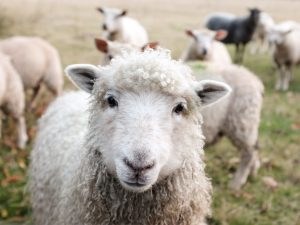We are delighted to share with you our library of resources. You can use the filter feature below to find topics most relevant to your curriculum.
Want to organise the resources you use most in one place? Register as a user to add content to your own Boards.
The Use of Animals
Do Christians accept the use of animals for food and experimentation?
Animal Rights
As with many moral issues, Christian opinion is divided on the issue of using animals for food and experimentation. This is due to their interpretation of the Bible, Church teachings, or simply their own personal conscience.
Many Christians support the use of animals because:
- They believe that God gave animals to humans to be used for food.
- God gave humans 'dominion' over all the animals on earth. He said to Adam and Eve, 'Have many children so that your descendants will live all over the earth and bring it under their control. I am putting you in charge of the fish, the birds, and all the wild animals.' Genesis 1:28. This leads some Christians to believe that they can use animals for food and experimentation.
- Some believe that God gave humans a soul, but not animals. They are not 'made in the image of God,' therefore, they are not considered to be as important as humans.
 Some Christians do not support the use of animals, choosing to be vegetarian or vegan. This is because:
Some Christians do not support the use of animals, choosing to be vegetarian or vegan. This is because:
- They believe that being 'in charge of the fish, the birds, and all the wild animals,' doesn't mean you can use them however you wish. Using animals for food and experimentation causes suffering to them, which is wrong because God created them. Humans are to be good stewards of animals, therefore, they should be cared for not abused.
- When God put humans in charge of the animals he also said, 'I have provided all kinds of grain and all kinds of fruit for you to eat.' Genesis 1:29. Some believe that this shows clearly that God intended humans to eat plants as food, not animals or the things they produce, such as eggs and milk.
Ethical Theories Applied
Utilitarianism: This theory argues that the best actions are the ones that bring happiness to the most people. In the case of using animals for human benefit, it might be argued that using animals for food and experimentation improves many millions of human lives, therefore, it is acceptable to do so. Experimentation leads to advancement in medical knowledge and cures for serious illnesses, saving thousands of people. Eating meat and animal products brings pleasure to millions.
 However, utilitarianism also opposes any action which causes harm or unhappiness. Some might use this to argue that as using animals does cause them harm, it is, therefore, wrong to use them.
However, utilitarianism also opposes any action which causes harm or unhappiness. Some might use this to argue that as using animals does cause them harm, it is, therefore, wrong to use them.
Situation Ethics: This theory states that the best actions are the ones that are the most loving in any specific situation, taking into account all aspects of the moral dilemma. When considering the use of animals for human benefit, some Christians might argue that experimentation is acceptable, as it advances medical knowledge, leading to cures for all manner of human diseases. This is the most loving thing to do for humans.
However, others argue that causing suffering and injury to animals - for food or experimentation - is not the most loving thing to do for the animals, therefore, it is unacceptable.
Christian Action
There are a number of Christian charities that work to promote the protection of animals. Examples include:
TASKS:
- Make a list of the ways humans use animals.
- Is there anything on this list that you think is unacceptable? Why?
- Why do some Christians believe they can use animals?
- Why do some Christians believe they shouldn't use animals?
- Which of these points of view do you agree with the most? Why?
